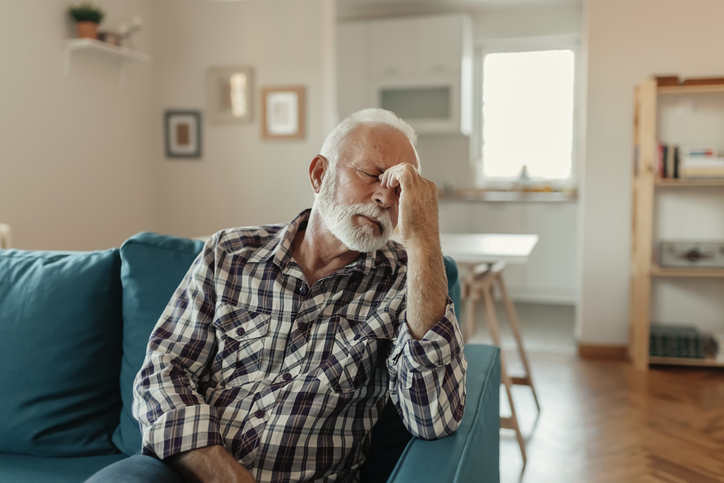
May 29, 2020
While several organizations and celebrations claim May as their month, our focus has been on recognizing Mental Health Awareness Month, which was started in 1949 by the non-profit Mental Health America (MHA) with the goal of promoting mental health.
An important part of MHA’s work is destigmatizing mental illness. Many people have difficulty seeking treatment because they believe they should be able to manage it on their own, doubt that medicine can help them, or see mental illness as a source of shame or embarrassment. Depression itself can be a reason a person may not seek help, as low energy, lack of motivation, and pessimism are all symptoms that interfere with healthy decision-making.
MHA estimates more than two million Americans age 65 and older are suffering from some form of depression. And with social distancing, isolation, and other disruptions in daily routine caused by COVID-19, the risk for depression and anxiety has increased for many individuals.
Depression

Depression may be exacerbated by health issues, grief, or isolation. Symptoms include sadness that lasts longer than two weeks, feelings of emptiness, loss, and futility, lethargy, loss of interest in normal activities, change in sleep pattern (inability to sleep or sleeping too much), distancing self from others, and frequent aggravation. Increased alcohol consumption as well as thoughts of self-harm can also be symptoms of depression.
Anxiety
Anxiety can manifest in a variety of ways, but typically it causes the sufferer to worry more about everyday things than they should. The most common disorder for older adults is generalized anxiety disorder (GAD), which is frequently associated with traumatic events such as a fall.
Some common symptoms of anxiety include: Sleep disruption, inability to make decisions and difficulty concentrating, irritability, and feelings of impending doom. Physical symptoms such as chest pain, dizziness, heart palpitations, shortness of breath, abdominal pain or indigestion, and sweating may also occur. Mental health is tied intrinsically with physical well-being and can exacerbate preexisting medical conditions. According to Dr. Nazem Bassil in an article in medical journal Current Psychiatry, it is important to seek treatment as “anxiety disorders are associated with lower compliance with medical treatment, which could worsen chronic medical conditions.”

How to Help with Symptoms
Everyone experiences stress. As simple as it sounds, it helps to take a moment to just breathe. Check in with how you are feeling without judgment. If there is something adding to your stress and anxiety (for example, COVID-19 news), take a break from it. Make sure sleep and exercise are both priorities. Reach out to family, friends, or neighbors to stay connected as loneliness and feelings of disconnection will exacerbate negative feelings. Most importantly, seek help if those feelings are threatening to overwhelm you. Talk with your physician. If appropriate, medication may be prescribed, with or without an accompanying recommendation for psychotherapy.
It is difficult to ask for help and vulnerability can make us feel uncomfortable, but it is important to remember that mental illness is not a personal flaw or weakness. If you think someone you care about is struggling with depression or anxiety, speak with them openly. Let them know you’ve noticed they are struggling and encourage them to seek treatment. You can offer to facilitate this process by helping to seek out a provider, set up appointments, or organize transportation. Mental illness rarely gets better on its own and may get worse. Take care of yourself and others.
For more information on symptoms and treatment recommendations, check out the Anxiety and Depression Association of America.
The Boulevard Senior Living of Saint Charles in St. Charles, MO offers independent senior apartments, assisted living, and memory care with a variety of services and a range of floor plan options. Amenities include restaurant dining, 24-hour bistro, concierge service, housekeeping, events and entertainment, personal care, transportation services, and more. Centrally located near SSM Health St. Joseph Hospital St. Charles with convenient access to major shopping centers and clubs, including St. Peters Golf Club, Mid Rivers Mall, Katy Trail, Main Street St. Charles, New Town at St.Charles, and the Streets of St. Charles.
The Boulevard Senior Living of Saint Charles serves and employs individuals of all faiths, regardless of race, color, gender, sexual orientation, national origin, age or handicap, except as limited by state and federal law.